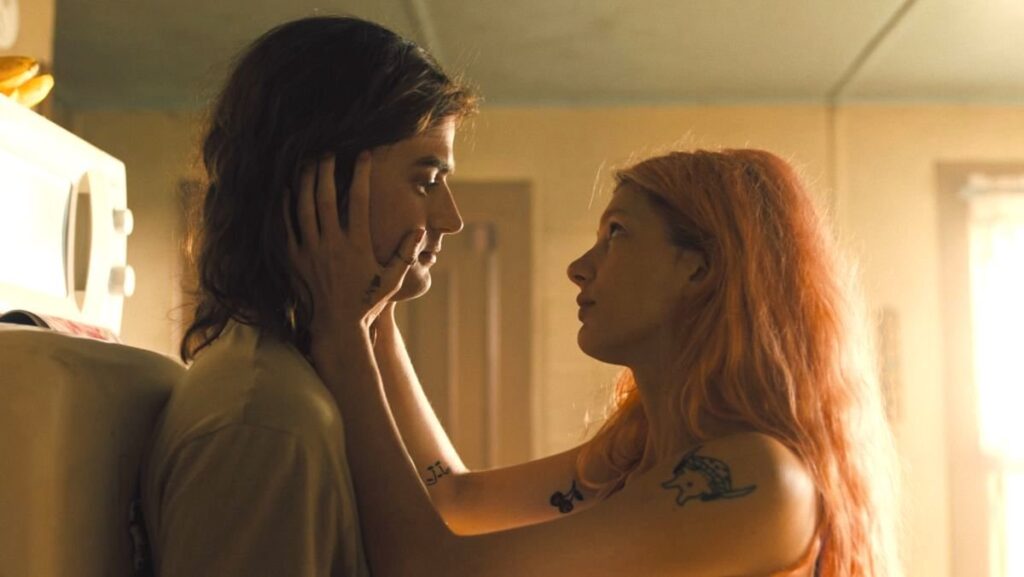A poignant moment toward the end of Marmalade reveals the following important truth, “Life can only be understood backwards. But it must be lived forwards.” (Spelling errors here are relevant to the film.) That insight is true about life, and it is certainly the key to embracing the movie Marmalade.
The best review for Marmalade would be short and to the point. It would advise its readers that the movie is brilliant and they ought to watch it. It would caution future viewers to seek no further knowledge than what the trailers and teasers for the film provide. And finally, it would remind them of the movie’s synopsis, which shares that Marmalade revolves around a young man called Baron, “Marmalade, the love of his life, and their ‘Bonnie and Clyde’-style scheme to rob a bank in order to care for his sick mother and give the couple the life they’ve always dreamed of.” Then it would end there.
Because truly, for a viewer to fully feel the movie’s mindblowing twists in full, Marmalade is best watched with only this and nothing more. However, since this is an actual movie review for Marmalade and not just a fantasy of one, we’ll delve a little deeper. In the end, Marmalade delivers everything written on its label. But the movie also offers so much more than that.
The true genius of Marmalade lies in the way it understands the expectations and, I would say, pretensions of its audience and uses them to its benefit. It’s a hard one to fully explain to someone who hasn’t yet watched the film. But, incredibly, the journey taken by the audience outside the movie screen exactly mirrors the one taken by the characters inside Marmalade‘s story.
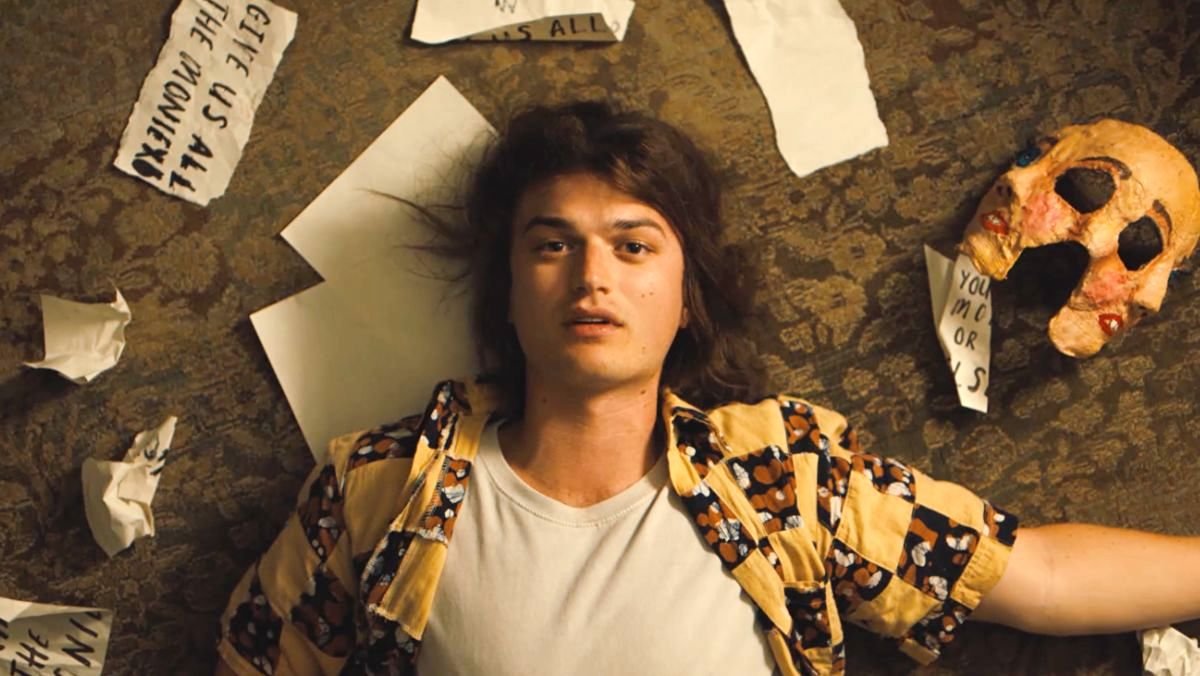
The first third of Marmalade plays exactly how one might imagine a low-budget indie movie about a “Bonnie and Clyde”-esque romance set in a small, rural town might play. It pulls in tropes and stereotypes. It features shots of hay bales against wide skyscapes. And it paints a familiar thematic tone that hits on ideas of isolation, desperation, and love. All this taken together, the beginning of the movie invites the viewer to think, “Well, that seems fine, I guess, though a little cliché” at its best times. And “Is that a necessary backstory element to add in again?” at its worst.
More than likely, viewers have more or less written off the movie by the time its middle begins, imagining that they know precisely how Marmalade will play out. That, of course, makes it the exact right time for the first twist to hit like a punch in the face. And from there, in a steady, pleased way, the movie sheds its disguises. Before our eyes, it removes its bumbling mask, flicks on the light, and shifts into gear. The writing sharpens, the cleverness of the narrative intensifies, and the twists, well, they keep on coming.
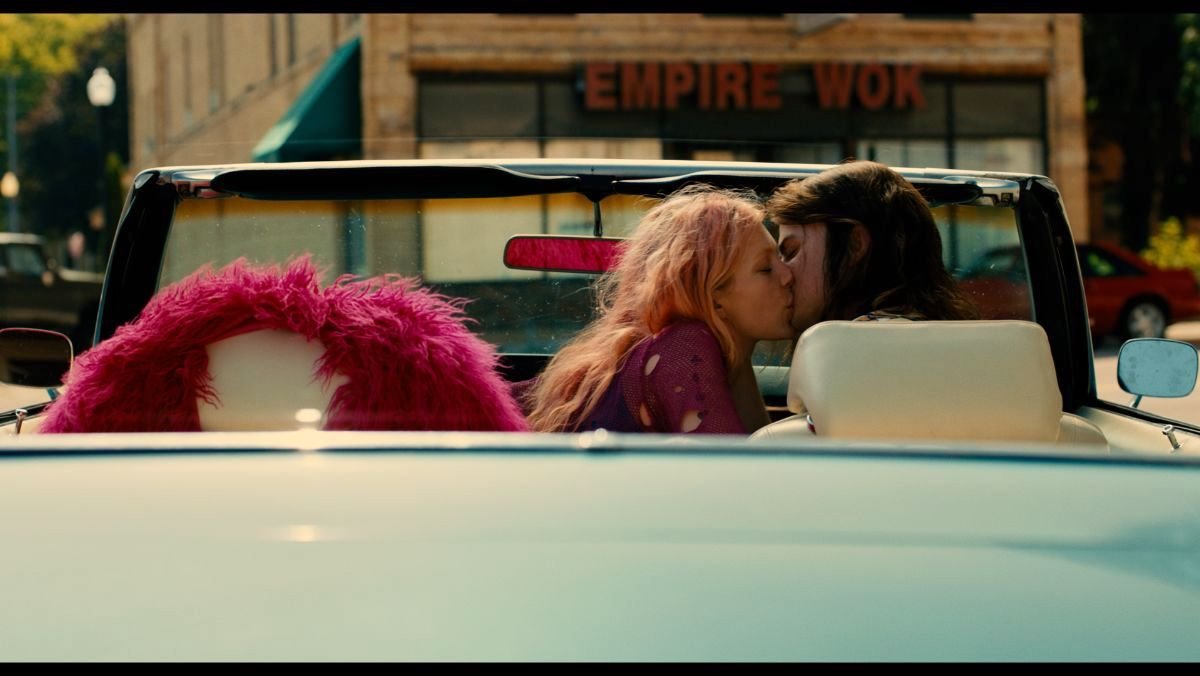
I will say, though, that even at the movie’s earliest, most complacent-seeming points, hints of something greater appear in Marmalade. The lighting and setting of a scene intermittently offer something special. The color and composition tease a level of care taken. The acting knocks it out of the park. And the movie’s vague surreality and moments of strangeness make it feel like something excellent lurks in the wings. Greatness seems to live just out of sight but not fully realized. The way the story gets told fools a viewer into thinking that Marmalade‘s bright points must be incidental or underbaked. But in truth, the whole film is purposeful with a vengeance. (A huge round of applause to writer/director Keir O’Donnell.)
My favorite gotcha technique from Marmalade involves the movie actually showing its audience how the perception and reality of a story can be wildly different. Very early in the story, the sweet, confused, and doe-eyed Baron tells his cellmate that his neighbor showed him a croquet with a message that read, “Where there’s life, there’s hope.” And that’s how we see the scene play out. But when questioned about the ridiculousness of the sentiment, Barron amends that he was shown a “crochet.” Then, the same story scene rewrites and replays. This time, it features a crochet panel instead of a croquet mallet. At this point, it should have been apparent that not everything will be as it appears in Marmalade. But the film works very hard to drop the hint and then obscure its truth.
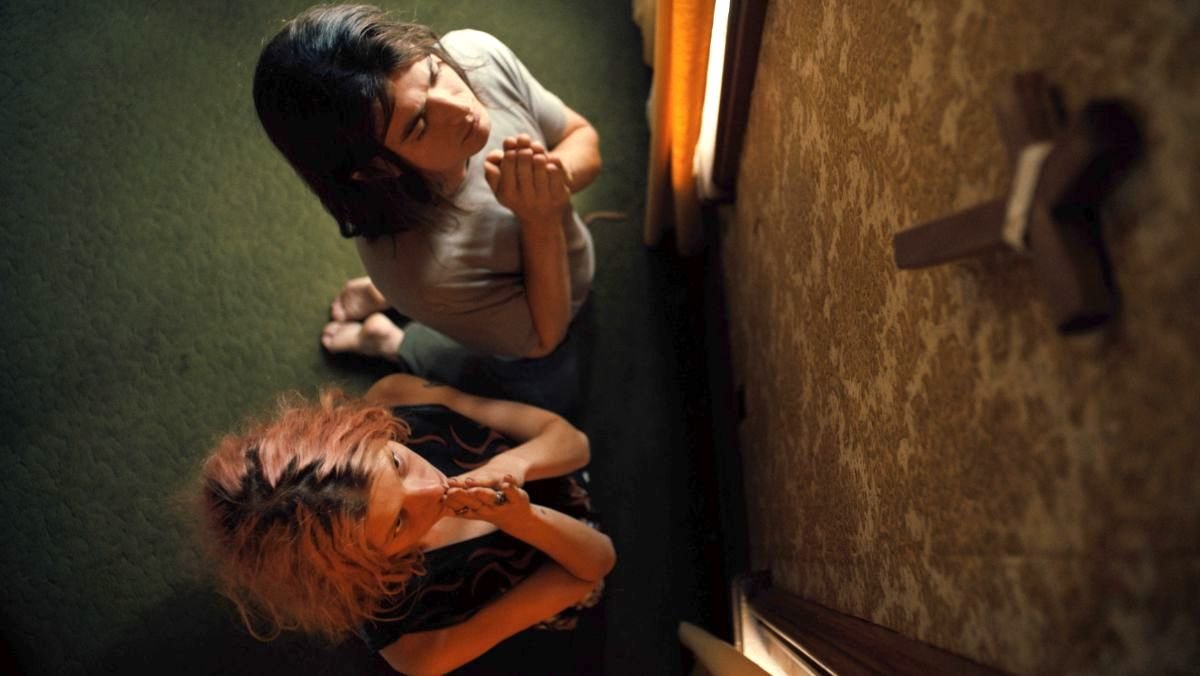
Marmalade is also an incredibly patient movie, which feels like a rarity these days. It does not rush into its twists, nor does it overbroadcast them. It simply takes the time it needs to make its viewers believe they know exactly what is happening and then reveals to them how truly blind they are. Many movies try to pull off these kinds of successful blindsides, but almost none of them succeed in full. Marmalade trusts in its own story and makes it look easy.

Of course, in the hands of a lesser cast, Marmalade might have achieved different results. But Joe Keery, Camila Morrone, and Aldis Hodge bring their absolute A-game. Camila Morrone fully becomes the finest example to date of a manic pixie dream girl. She’s by turns unhinged, endearing, and downright diabolical. Aldis Hodge, meanwhile, slips in and out of many hats very deftly. And he is very much the audience’s through line into the tale.
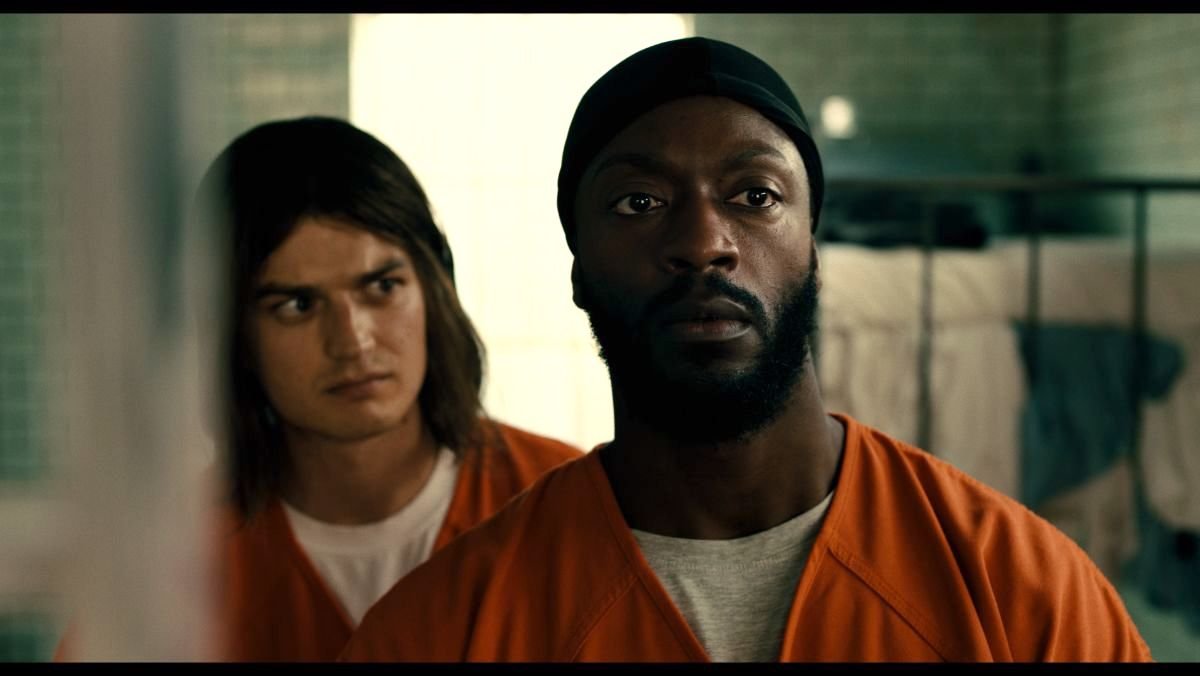
Finally, Joe Keery. I cannot say enough about Joe Keery in this film. Blinded by his spectacularly ridiculous hair, his absurd drawl, and the true ineptness that seems to cloak his character, it’s easy to miss everything else going on. And Marmalade trades heavily on the idea that this will occur. But as it does in so many ways, the movie allows Keery to embrace some of the tropes that perhaps have come to cling to him as an actor thanks to his prolonged time on Stranger Things and then twist them magnificently. Without the true tragic earnestness of Keery’s Baron lighting up the movie, Marmalade could not have pulled off what it does.
Ultimately, Marmalade is and is not the movie you think it will be. It pays off its initial ideas and adds on many other delights. And, as the film nears its conclusion, the audience now fully clued into everything going on, a real heart emerges and shines. Marmalade‘s final sequences warm you with the glow of a story well told. They create that bittersweet lump in your chest that only comes when you have come to care about characters and their relationships. We couldn’t have foreseen this outcome 10 minutes into the movie. But, of course, we can only understand Marmalade backwards and experience it forwards.
Marmalade releases in theaters and on-demand on February 9.

